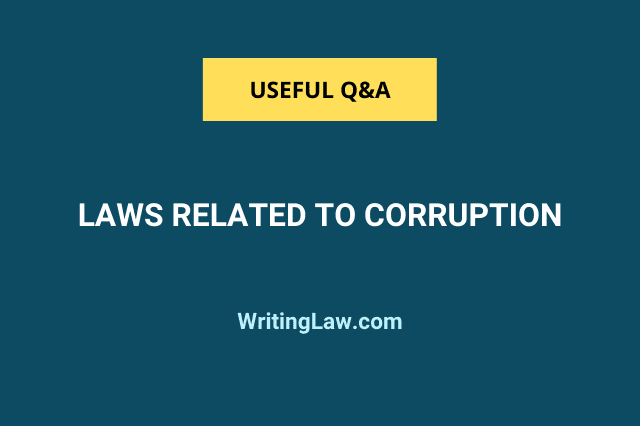
Corruption involves dishonest and fraudulent acts performed by people or organisations who are entrusted with power. In India, to curb corruption, various anti-corruption laws have been enforced, which involves the following Acts:
The Prevention of Corruption Act, 1988
This Act deals with laws that are made to prevent corruption and matters connected with it. The Act applies to all the citizens of India irrespective of the fact they are in India or outside India.
The Act has a wider interpretation of the word public servant. It includes any person who performs any duty which affects a larger interest whether they are appointed by the government or not.
Section 7 and section 7A provides punishment for a public servant who obtains, accepts or attempts to obtain undue advantage for any dishonest or improper performance of duty. The accused shall be punished with imprisonment for a term that shall not be less than three years but may even extend to seven years and shall also be liable for a fine.
Section 8 and 9 of the Act deals with anti-bribery laws for which the accused can be punished with imprisonment up to 7 years or a fine.
Indian Penal Code, 1860
Section 403 of the Code punishes an accused with imprisonment for up to 2 years or fine or both for dishonestly misappropriating or converting movable property for personal use.
Section 408 and section 409 of IPC deal with the punishment of the criminal breach of trust by a clerk or public servant, for which imprisonment can be up to 10 years.
Many governmental bodies/authorities deal with the investigation of corruption cases like the Central Vigilance Commission, the Central Bureau of Investigation, and the Anti Corruption Bureau.
Read Next: Role and Function of Central Vigilance Commission of India
- What Are the Rights of Private Sector Employees in India? - 4th April 2023
- Is an Unmarried Woman Legally Allowed To Have an Abortion in India? - 27th June 2022
- What Are the Two Main Schools and Four Sub-Schools Under Hindu Law? - 27th April 2022







